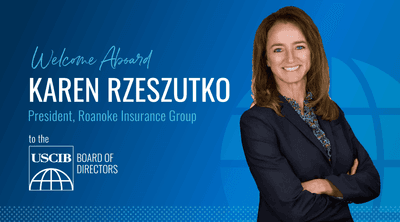February 12, 2016 | Industry Insights
The Easing of Iranian Trade Sanctions and What It Means for U.S. Business

On July 14, 2015, the United States, United Kingdom, France, Russia, China and Germany reached a historic nuclear non-proliferation agreement with Iran called the Joint Comprehensive Plan of Action JCPOA). As a result, comprehensive international sanctions restricting dealings with Iran and Iranian entities were substantially eased.
The lifting of sanctions was primarily “secondary” and applicable to non-U.S. parties. The areas of focus under the JCPOA sanctions-relief commitments are the following: finance/banking; insurance/reinsurance services; the energy and petroleum sectors, including sanctions relating to the sale and purchase of Iranian crude and related financial services and investment in Iran’s oil, gas and petrochemical sector; shipping and shipbuilding; gold; software and metals; and the automotive sector.
The U.S. also removed a large number of individuals and entities from applicable prohibited party lists, and took steps to:
- Allow for the export, re-export, sale, lease or transfer of commercial passenger aircraft and related parts and services to Iran for exclusively civil, commercial passenger aviation end-use;
- License non-U.S. entities that are owned or controlled by a U.S. person to engage in activities that are consistent with the JCPOA and applicable U.S. laws and regulations; and
- License the importation into the United States of Iranian-origin carpets and foodstuffs.
As a general rule of thumb, any U.S.-based business and any U.S. person, unless specifically authorized, will be precluded from doing any business in Iran. For example, under the new rules put into place, the U.S. will no longer sanction foreign individuals or firms for buying oil and gas from Iran, however, the American trade embargo remains in place, meaning that there is ban still on US nationals and companies from engaging in business with Iran. There is one big exception: the civil aviation industry, as outlined above. Outside of civil aviation, there are exceptions for foods and medicines — which the U.S. has previously allowed to be traded — and some potential loosening of restrictions on foreign subsidiaries of U.S. firms.
The U.S. Office of Foreign Assets Control (OFAC) issued a regulatory exemption (“General License” or “GL H”) to foreign companies “owned or controlled” by U.S. persons to engage in activities with Iran
consistent with the JCPOA.” However, there are significant constraints on transactions that involve:
- The direct or indirect exportation or goods, technology, or services from the United States to Iran;
- The transfer of funds to, from, or through the U.S. financial system; or
- Any entity on the SDN (Specially Designated Nationals) List.
Transactions undertaken by foreign subsidiaries that fall afoul of these prohibitions would not receive the benefit of the General License and could lead to U.S. sanctions liability for both the U.S. parent and its subsidiary.
The easing of U.S. and European sanctions under the JCPOA opens new opportunities for business with Iran. Yet, because the sanctions that were eased are rather complex and may “snap back” into place should Iran fail to uphold its nuclear commitments under the terms of the JCPOA, businesses are well advised to proceed with caution and to continue to monitor related trade compliance developments closely.
The following link provides more information on the lifting of certain sanctions under the JCPOA: https://www.treasury.gov/resource-center/sanctions/Programs/Documents/jcpoa_faqs.pdf
Roanoke Trade will keep you abreast of developments involving this historic agreement and how they affect the global logistics services industry. We specialize in providing insurance and surety solutions for transportation and logistics providers, and are recognized as the most reliable source for U.S. customs bonds. Contact us at 1-800-ROANOKE (800-762-6653).













